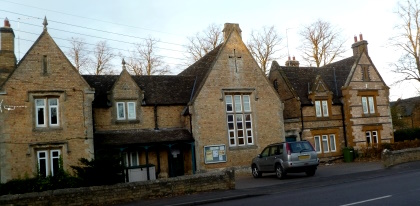|
News for the Pews |

Home

30th September 2024
MondayReflection
************************
'Scott Shauf shares'
'Associate Professor of Religious Studies
at Gardner-Webb University'
"The daily life of the earliest
Christian community "
************************
Acts 2:42-47 summarizes the daily life of the earliest Christian community in Jerusalem.
The passage is fairly easy to understand in terms of the picture it describes.
Its challenge comes in discerning how to apply it.
Is the life of this community to be taken as a model for Christian life today?
If so, it would be hard to deny that most Christians are missing the mark on some key points.
If it is not to be so taken, then what shall we do with the passage?
The account follows directly on the story of Pentecost, where the Holy Spirit had been experienced powerfully not only by the gathered remaining followers of Jesus, but also by many others in Jerusalem in the neighbourhood of their gathering.
Peter had given the first Christian evangelistic sermon, explaining that what the people were experiencing was the end-times gift of God's Spirit promised by the prophet Joel, now poured out on them by the risen and exalted Christ.
The response to the sermon was tremendous: Three thousand people repented, were baptized, and joined the Jerusalem Christian community.
Most of the activities described as characterizing the community's life, teaching, fellowship, eating together, and prayer have been common Christian practices for ages.
The middle two of these may be especially significant - fellowship and eating together, mundane as they seem, are not activities we just happen to do but are essential acts of Christian life.
Does "the breaking of bread" refer specifically to the Lord's Supper or more generally to shared regular meals?
The answer is probably both, as the Lord's Supper was celebrated as a part of regular meals in the early church.
This may surprise some, as the common stereotype is that early Christians were constantly the object of ridicule and scorn.
That is at least not the case here, though certainly trouble will arise in the following chapters.
Verse 43 describes the miracles done in the community.
This naturally raises the question of whether and to what extent miraculous activity ought to characterize Christian life today.
The importance of the picture here might be mitigated by the fact that God is the initiator of the miracles - contrary to many of the major translations, including the NRSV, the Greek text says not that they were done "by" the apostles but that they were done "through" (Gk dia) them.
Performance of miracles is not primarily a matter of human volition, though one might still ask why miracles occur in one setting and not in another.
The members of the community sold their possessions, held all things jointly, and distributed to others as there was need.
Ought all Christians to follow this example?
The strongest reason for answering "no" here comes from setting this passage in the context of the overall New Testament witness.
While it is not hard to find examples of the community's other described activities throughout the New Testament, the New Testament as a whole does not indicate that early Christians broadly lived in this radical communal fashion.
We do not even find it in Acts outside of the original Jerusalem community.
All other indications about Christian living, whether direct or implicit, are that Christians retained their homes and basic possessions.
We must beware, however, of dismissing this passage too easily.
It is no coincidence that this activity is described as following the powerful gift of the Spirit and the performance of miracles through the apostles!
These points suggest that where God is especially at work and where God's presence is especially experienced, such giving and sharing is the natural Christian response.
Jesus' own followers during his lifetime lived in such an intensive community.
That our own lives look quite different is likely an indication that we have not experienced such divine work among us.
I do not mean this as an indictment but merely as a recognition.
We still live in a fallen world, and such powerful experiences of God's activity are not common.
But where they occur, our response should be one of celebration rather than suspicion, and we ought to seek such things, not avoid them.
In the meantime, our lives, communal and individual, ought to reflect our own experiences of God's grace and action in and among us.
What message do we send to the world about God by our own attitudes and deeds concerning our possessions?
How can our own lives better reflect what God has done for us and the living presence of Christ in our midst?
><(((°>
This is an edited version.
The full article, and Bible references, is avaiable on request
'Working Preacher'
is a ministry brought to you by Luther Seminary.
The Working Preacher team believes that God uses good biblical preaching to change lives.
We have enlisted hundreds of friends - biblical scholars, theologians, homileticians and pastors dedicated to the craft of biblical preaching - to provide you timely, compelling and trustworthy content.
Scott Shauf
is Associate Professor of Religious Studies at Gardner-Webb University in Boiling Springs, North Carolina.
He is the author of two books, most recently The Divine in Acts and in Ancient Historiography (Fortress Press, 2015),
and a number of articles and other shorter works.
He preaches and teaches regularly in churches in his community.

Contact the Rector
The Revd.
Nic.Edwards
The Rectory,
Church Lane,
BUGBROOKE,
Northampton,
NN7 3PB
Land Line: 01604 - 815496
(Can be accessed from the mobile device)
Mobile: .....
E-mail:
thebeneficeofbhkandr at gmail dot com
Contact the Benefice Office
Sunday School Rooms, Church Lane,
BUGBROOKE, Northampton, NN7 3PB
Land Line: 01604 830373
E-mail:
thebeneficeofbhkandr at gmail dot com
Mon., Tues., Wed,, Thur., Fri.
9:00am to 11:30am

For Baptism bookings (Christenings)
to arrange an appointment please contact
the Benefice Office.
For Wedding bookings:
please contact the Benefice Office to arrange
an appointment.
Who Made This?
Seeing as you asked, if you can give helpful
advice or report factual corrections and
'deliberate mistakes',email:-
regparker3 at gmail dot com
Email addresses shown using words in an
attempt to avoid 'spam',
Type the email address replacing 'at' with '@',
and 'dot' with '.'
|



